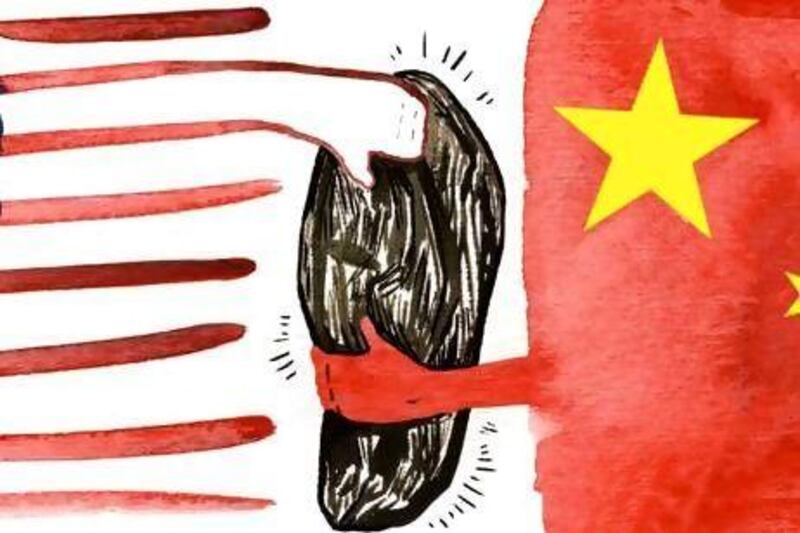Earlier this year, The Takeaway was cowering in trepidation at the possibility of an asteroid smashing into our little planet and inflicting on humanity the same fate as the dinosaurs.
Now we've learnt that maybe the prospect of celestial bodies coming within Earth's proximity is not as unwelcome a proposition as we'd previously thought.
The reason for this sudden change of heart can be traced to metallic ore. For further explanation, we need to backtrack to last week, when The Review heard from Aaron L Friedberg, an adviser to Mitt Romney, who hinted that growing animosity between China and the United States could eventually lead to all-out warfare.
While he suggested this military showdown may be some years off, perhaps the greater threat from all this looming conflict is that it might impede the flow of raw materials from China, some of which are essential to the production of those technological status symbols that some of us could not live without.
The bone of contention between the two nations is rare earths, a group of 17 minerals that are key components in luxury items such as mobile phones, tablet computers and clean energy cars.
Incidentally, their name is something of a misnomer - many of these resources are actually quite plentiful, especially in China where they have previously been found at a decent or, at least, competitive price.
Unfortunately for the rest of the world, the Chinese have maintained strict mining limits and export quotas on these goods and now control 97 per cent of global production. Consequently, some luxury goods manufacturers, keen to expand their product range, are feeling the pinch.
Many multinationals, such as Apple, get around this by producing the lion's share of their goods within Chinese borders. But then they find themselves open to accusations of hiring a poorly treated labour force.
While such claims seem to make little impact on the technology giant's ever-swelling share price, a few commentators believe that Apple won't forever be immune to this material shortage. According to some industry insiders, the company has had to delay launch of its iPhone 5 due to a scarcity of suitable computer chips, which in turn is down to constraints in supply of raw (and rare) materials.
So, pending the unlikely event of China loosening its grip on production, technology firms are considering alternatives to lessen their dependence. For example, Hitachi recently unveiled an environmentally-friendly electric motor that it claims uses none of these minerals.
Recycling of obsolete product has also been mooted as an option and just this week Honda announced that it had made a breakthrough in being able to extract rare earth materials from car batteries.
While there continues to be a dearth of such resources, there's also a continuing worldwide shortage of precious and industrial metals, such as gold, copper and tin.
For this dilemma, some are pondering solutions in the sky, such as a consortium that counts among its members Titanic director James Cameron and Google founders Larry Page and Eric Schmidt.
Their startup company, named Planetary Resources, aims to launch the world's first commercial space mining venture to harvest the rich deposits of precious metals (including platinum) thought to lie within many asteroids currently speeding through the cosmos.
While many claim this idea is farfetched, Nasa scientists have concluded it could well be a way of boosting the world's rarer mineral resources.
Of course, this ignores the basic law of supply and demand in a market economy. Precious resources are only expensive because they are rare. If you flood the market with a commodity then its price tumbles. A truth which might keep Planetary Resources grounded for now.





